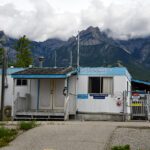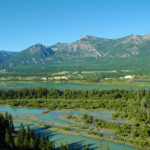Home »

Exercise extreme caution in the backcountry
The B.C. government is urging people to be prepared and extremely cautious in the backcountry, with continued high and considerable avalanche risk forecast in many areas of B.C.
Avalanche Canada continues to monitor a deep, persistent slab avalanche problem for many regions. This is causing dangerous and highly unpredictable avalanche conditions. Avalanche Canada continues to encourage people to stay away from steep slopes and terrain, and to check: https://www.avalanche.ca – for avalanche conditions for forecasts.
“This is a highly unusual and unpredictable snowpack. The complication with this snowpack setup is that the layers are deep enough that we are less likely to see clues of instability, like nearby avalanche activity, ‘whumpfing’ or cracking snow,” said Ryan Buhler, forecast supervisor with Avalanche Canada.
“However, despite the lack of obvious clues, there is serious potential for large, human-triggered avalanches. We urge backcountry users to exercise caution and make conservative, low-consequence choices if they decide to travel in avalanche terrain. Backcountry users should always check the avalanche forecast – carry a transceiver, probe and shovel, and be trained to use them.”
Avalanche Canada expects these conditions to last the remainder of the winter season in some areas.
In 2021, the province provided a $10-million grant to assist Avalanche Canada with the funding certainty required to continue its work in keeping British Columbians safe by monitoring avalanche risk and providing public-safety information.
Advice from Avalanche Canada:
* Avoid steep, shallow and rocky terrain features. Everyone in a backcountry party needs the essential gear, such as a transceiver, shovel and probe, and the training to use them.
* Adopt a cautious mindset when in avalanche terrain.
* Be diligent about terrain choices. Sticking to slope angles of less than 30 degrees when in clearings, open trees and alpine terrain can help minimize risk.
* Follow disciplined group decision-making, ensuring that each group member is engaged in terrain selection.
* Minimize exposure to overhead hazards, given that these avalanches can be remotely triggered and travel far in runout zones.
* Travel one at a time when exposed to avalanche terrain and regroup in safe spots well away from overhead hazards.
* Avoid exposure to terrain traps, such as gullies, cliffs and trees, to reduce the risk of being caught in an avalanche.
* Practise patience, avoid complacency and accept that you may need to manage this risk for weeks or months to come.
During the past 10 years, approximately 73% of all Canadian avalanche fatalities have occurred in B.C.
e-KNOW







